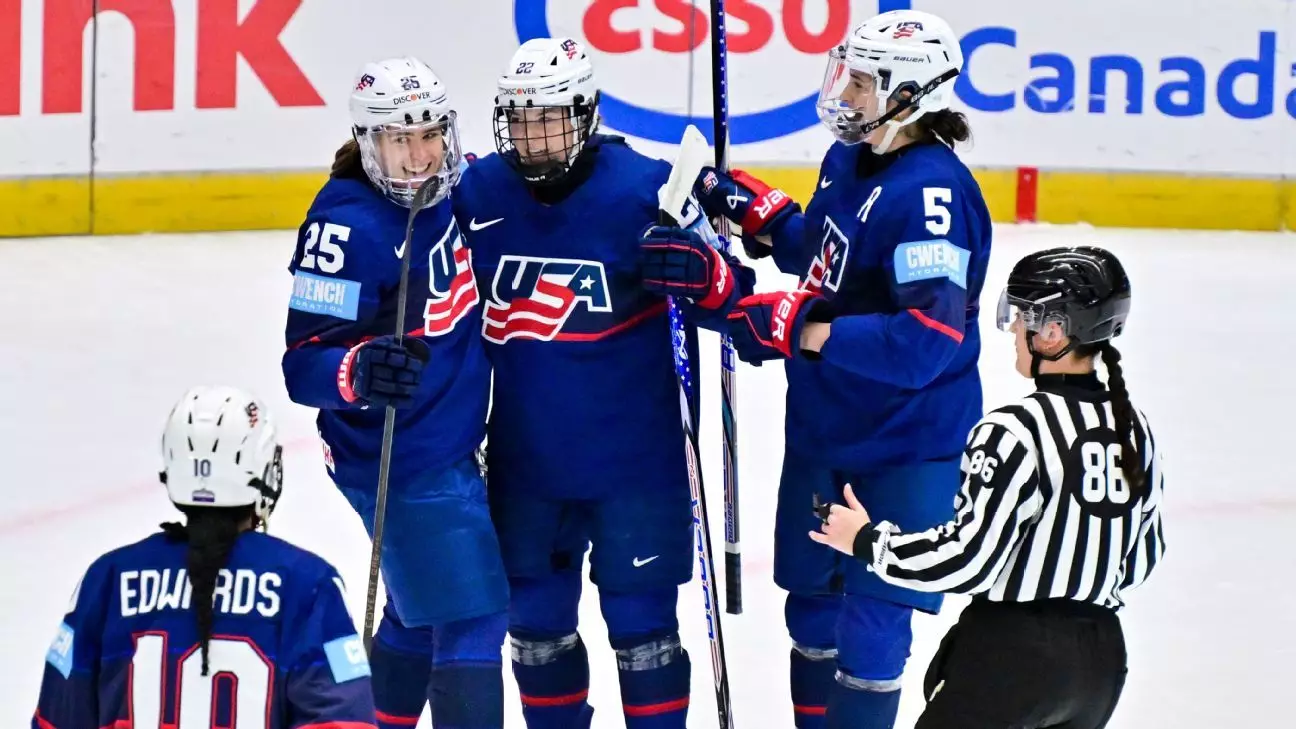In one of the most exhilarating games of the Ice Hockey World Championship held in Herning, Denmark, the United States narrowly defeated Norway 6-5 after a rollercoaster of a match that saw the Americans come perilously close to throwing away a commanding lead. The game will be remembered not just for the final score but for the sheer intensity and unpredictability displayed by both teams. Tage Thompson of the Buffalo Sabres was the star of the night, completing his hat trick with a decisive power-play goal in overtime. The match encapsulated the unpredictable nature of sports; even with a four-goal lead, anything can happen.
The fact that the U.S. almost let the game slip illustrates a common psychological pitfall in competitive sports: complacency. When teams accumulate a significant lead, there can often be a tendency to ease off the gas. The Americans initially showcased their firepower, but their inability to maintain control became a glaring vulnerability. Coaches often emphasize the necessity of maintaining focus and discipline, especially in high-stakes situations like a World Championship game. This clash highlights the importance of fortitude in not just the physical, but also the mental aspects of the game.
The Resilience of Norway
Norway’s comeback was nothing short of remarkable. The team displayed tremendous grit, particularly defenseman Stian Solberg, who scored a hat trick of his own and reversed the momentum when it seemed firmly in the U.S.’s favor. After trailing 5-1, Norway executed a textbook example of resilience, rallying to utilize both power plays and the element of surprise to their advantage. With their goalie pulled in the final moments, they created a kind of chaos that ultimately resulted in Solberg’s equalizing goal.
The significance of this achievement cannot be understated. By securing their first point in the tournament, Norway demonstrated that they are not just participants but serious contenders. Solberg’s reflections on the game reveal a sense of pride and collective achievement that can galvanize a team moving forward. Such performances can propel teams to new heights, as they instill a valuable lesson: it’s not over until the final buzzer sounds. This fierce display of tenacity will surely motivate Norway as they push on in the tournament.
Stars Shining Bright
For the U.S., the spotlight undeniably shone on Tage Thompson and team captain Clayton Keller. Thompson’s hat trick not only proved pivotal for the victory but also underscored his evolving stature in international ice hockey. Meanwhile, Keller’s contribution, with a goal and two assists, proved his leadership and vision on the ice. The American team, though facing criticism for their lapse, can now build on the positive aspects of their performance, particularly the dynamism shown in their first-period attacks. Each player, from Cutter Gauthier to Michael McCarron, played their part in an often chaotic yet thrilling game of ice hockey.
Additionally, the presence of Columbus Blue Jackets defenseman Zach Werenski emphasizes the critical role that experienced players can play in a high-pressure environment. After missing out on the previous match due to equipment delays, Werenski contributed meaningfully in his return, indicating that he could be a major asset as the U.S. moves forward. His addition strengthens a defense that must learn from this close call and solidify their play to avoid repeating similar lapses.
Looking Ahead
As both teams process the implications of this game, the U.S. must regroup quickly as they prepare to face a strong German squad on Saturday. Head coach Ryan Warsofsky’s statement about building on this win serves as a reminder that while victory is sweet, there are lessons aplenty woven into the fabric of every match. This game serves as both a lesson and a launchpad for further success, necessitating vigilance and a commitment to maintaining their competitive edge.
For Norway, the focus may very well shift to sustaining their newfound momentum. Despite the gut-wrenching loss, they have shown they can compete against higher-ranked teams and should carry that confidence into their future games. The mixing of stellar performances and moments of struggle offers a learning opportunity that can catalyze further growth in every facet of their game. Each match is an opportunity; like the flickering flame of a candle, sometimes it takes a gust of wind for it to burn brighter.

